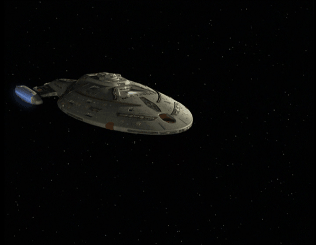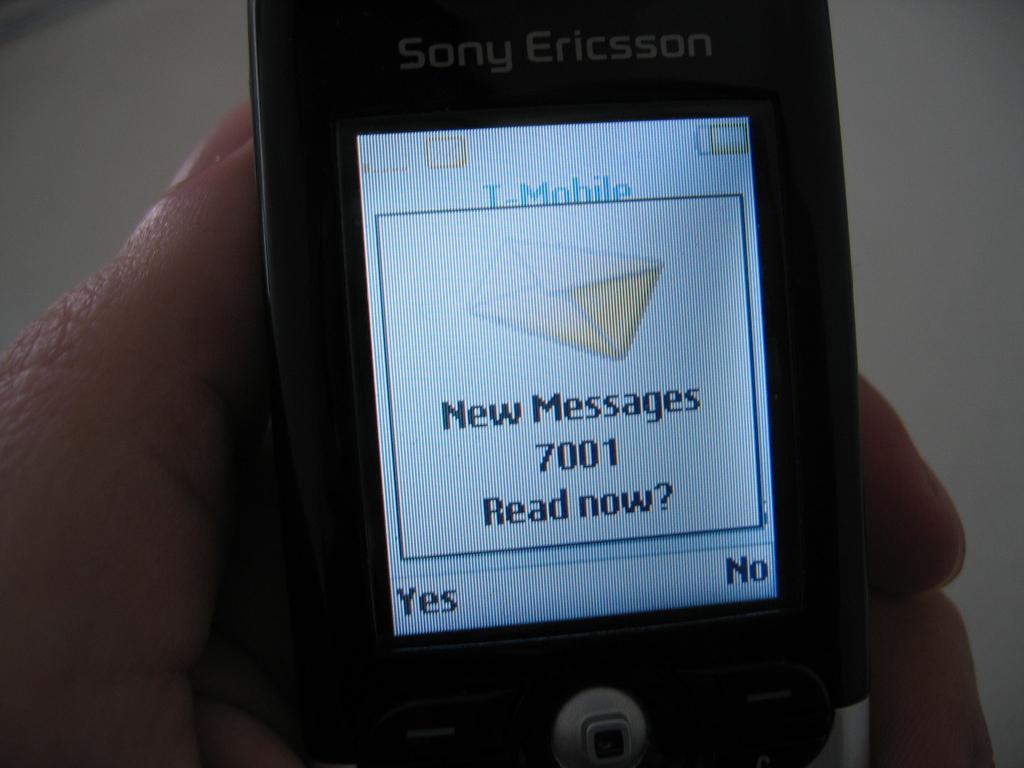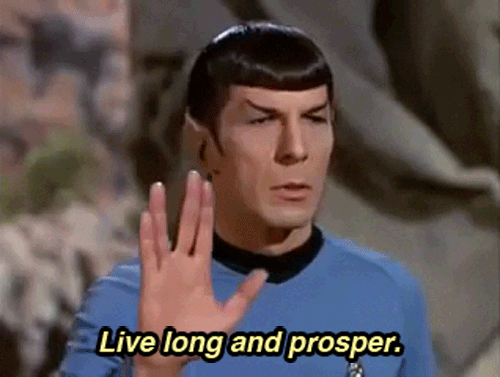To Infinity and Beyond: Language and the Golden Record
GIF via Giphy
Okay, so, perhaps this isn’t the ideal way to extend a warm greeting to our visiting neighbours from the stars. But the aliens in this imagination of a close encounter were not exactly extending a tentacle of friendship, so, perhaps on this occasion we can be forgiven.
Although, considering some of the things we have sent up into space, we could forgive any potential invaders of our fair planet for misinterpreting our messages. For instance; why did we send The Day The Earth Stood Still up towards Alpha Centauri, when it only portrays just how xenophobic a people we are?
Another mixed message we appear to be sending is that the inhabitants of Planet Earth speak only in one tongue; namely, English. Let’s look at some attempts to redress that balance, to show the true richness of languages available for alien listeners to eavesdrop here on Earth.
Voyager

GIF via Giphy
Okay, no, thank you Captain Janeway, we didn’t mean you (though thank you, truly, for your service). No, the Voyager we want to talk about is the Voyager Golden Records, the gold-plated phonograph record sent on Voyager 1 and 2 by Nasa as they left our solar system. These discs - essentially a time capsule - were meant to provide a snapshot of life here on Earth. But what is of greater interest to us as language fans, is the Greetings to the Universe, which was a collection of fifty-five variations on the greeting Hello,spoken in different languages from around the world.
Learning a new language? Check out our free placement test to see how your level measures up!
It is interesting to see how these greetings vary - or at least, how those responsible for choosing how to represent those languages make them vary. If you would like to see the full list, please look here, otherwise, here are some snippets to pique your interest.
The Peaceful
German - “Heartfelt greetings to all.”
Hungarian - "We are sending greetings in the Hungarian language to all peace-loving beings in the Universe."
Spanish - “Hello, and greetings to all.”
The Optimists
Mandarin - "Hope everyone's well. We are thinking about you all. Please come here to visit when you have time."
Gujarati - "Greetings from a human being of the Earth. Please contact."
Arabic - "Greetings to our friends in the stars. We wish that we will meet you someday."
And… Russia
Russian - "Greetings! I Welcome You!" - which sounds, perhaps, a little egotistical…
Now, there is nothing wrong with a friendly greeting being sent up into space; in fact, we might actively encourage it. We also like that research was carried out to select those languages most widely spoken around the time of Voyager being prepared. However, with every one of those greetings also being translated into English to be sent, this gives English the appearance of superiority on the language front. Or does it just recognise English as an easy-to-use tool?

Photo via Flickr
Other messages
And we’ll keep this brief. Some choice examples of other language excursions into space - in English, naturally - include: the 2008 Doritos ad beamed to 47 Ursae Majoris; 501 social media messages, also sent in 2008, to Gliese 581 c; 5000 messages from across the internet sent in 2010 towards the Orion Nebula; and 25,800 text messages from Australians to Gliese 581 d in 2009. Quite an eclectic selection there, we are sure you will agree.
International (Space Station) Relations
Perhaps, where we here on Earth are failing to express ourselves adequately in all of our native tongues, those of our astronauts who inhabit the International Space Station (ISS) are succeeding, or at least, taking a step in the right direction. Whilst English might be considered the dominant language of the ISS, astronauts since 2011 have also been required to learn Russian, to recognise the collaborations we achieve through space exploration.
Borne of this is Runglish; a hybrid of both Russian and English, where speakers can converse in both languages, or a mixture of parts of them, and still be understood. Runglish is, of course, not an official language, and neither does it fairly represent all of the languages we speak; but it does show that English is not the only viable language for space.
Add to this, the range of nationalities that have inhabited the space station - American, Russian, Japanese, Italian, Canadian, French, German, Belgian, Dutch and British - and we can perhaps hope that if aliens happened to come across the ISS before reaching Earth, they would at least hear a variation there to demonstrate that English really isn’t the be all and end all of languages here on Earth.
And maybe, there is only one, true greeting we honestly need...

GIF via Giphy



